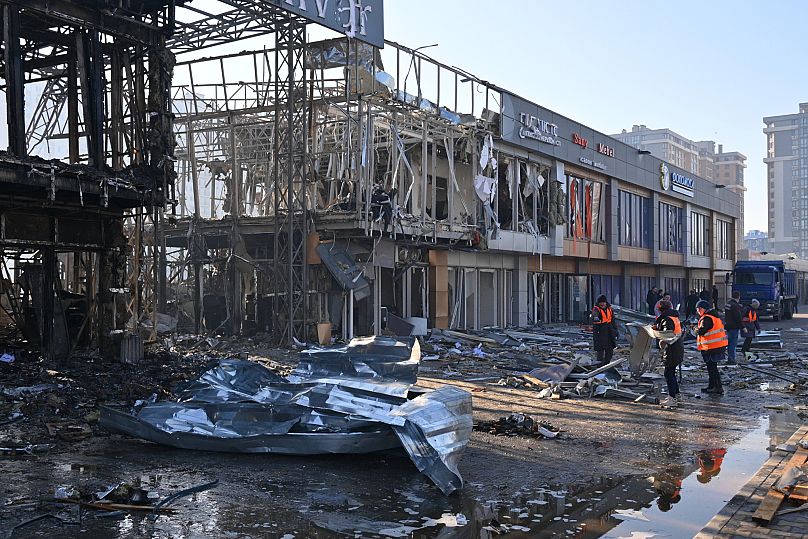The German customs authority has confiscated the Panama-registered oil tanker named 'Eventin,' which has been moored along Germany’s Baltic Sea coastline since January.
The ship is believed to be part of Russia's so called 'shadow fleet' of aging tankers of uncertain ownership and safety practices that Western governments say Moscow has resorted to using to dodge sanctions and keep oil revenue flowing.
Security officials informed the German magazine Der Spiegel that the General Customs Directorate has issued a seizure order. As a result, both the vessel and the roughly 100,000 tons of crude oil—valued at more than €40 million—are set to be claimed as German assets.
As stated in the report, the German authorities opted to seize the vessel instead of allowing it to proceed after it was identified as belonging to Russia's covert naval force in February.
The statement also indicated that both the government and the Foreign Ministry think this strategy aims to convey a message to Russia that Germany will not tolerate allowing Russian oil to pass through the Baltic Sea.
Evading international oil sanctions
The shadow fleet consists of old tankers acquired second-hand, typically through opaque organizations based in nations not imposing sanctions, such as the United Arab Emirates or the Marshall Islands, and registered in locations including Gabon or the Cook Islands.
The new proprietors opt for insurance providers based in Russia or other non-Western regions.
Some of the vessels are owned by the Russian state Sovcomflot shipping company. Their role is to help Russia's oil exporters elude the $60 per barrel price cap imposed by Ukraine's allies.
This measure is designed to restrict Russia’s earnings but maintain the flow of oil into worldwide markets, thus preventing an energy shortage that could elevate gas prices and boost inflation.
While estimates differ, both S&P Global and the Kyiv School of Economics Institute suggest that more than 400 vessels capable of carrying oil or refined products like diesel and gasoline are involved.
Evading the cap has led to an increase in the price Russia receives for its oil in international markets, according to sanctions specialists.
For the initial eleven months of 2024, export earnings amounted to an average of $16.4 billion each month, which was a 5% increase compared to the corresponding timeframe in 2023 when Russian oil had an average price of $64 per barrel, as reported by the Kyiv School of Economics. By bypassing the cap, Russia managed to gain an additional $9.4 billion.
This implies that it also affects how Russia conducts its war in Ukraine, since the Kremlin can utilize those profits to fund the manufacturing of weaponry and other military supplies.
Revenue from oil fosters financial steadiness by assisting in keeping the budget deficit at bay and bolstering the value of the Russian ruble relative to other global currencies. The sale of oil ensures that Russia’s trade balance remains positive, indicating that the country exports more than it imports, thereby having funds available for purchasing foreign goods.
Consequently, according to the latest evaluation by experts from the Kyiv School on the Russian economy, "there are no substantial limitations on Russia’s budget or wartime expenditures."
So far, the Kremlin has not commented on the shadow fleet.



No comments:
Post a Comment